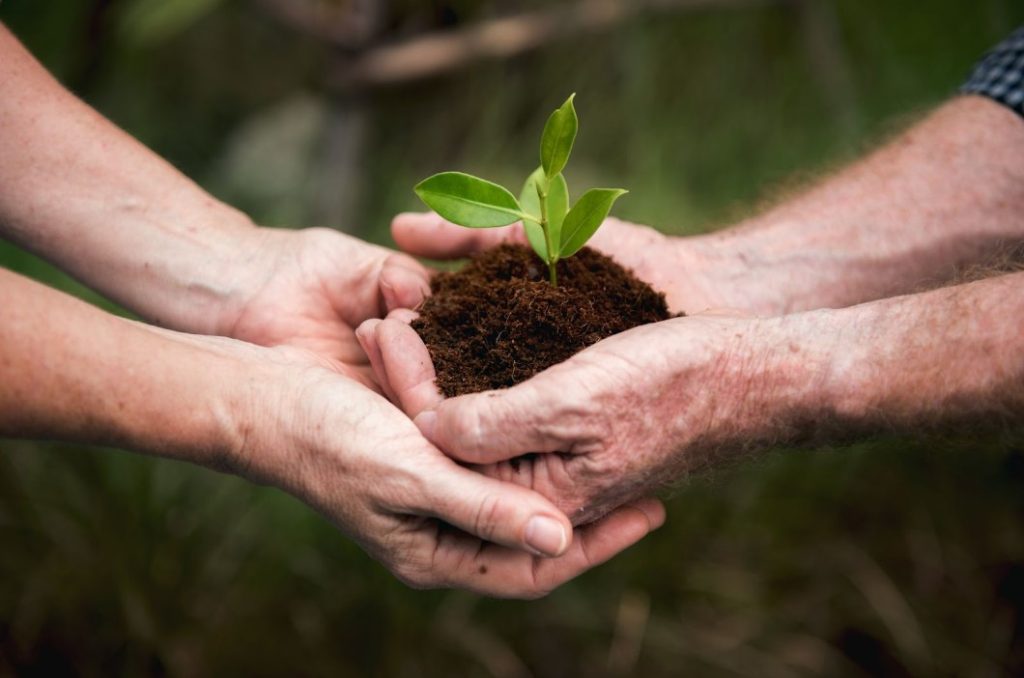In a time when our planet’s well-being is of paramount importance, adopting a sustainable lifestyle can make a significant difference. Join us as we uncover nine actionable and impactful ways to incorporate sustainability into your daily routine, empowering you to be a catalyst for positive change.
From small, everyday choices to larger lifestyle shifts, we can pave the way for a greener, healthier, and more harmonious world.
Ready to embrace some simple and practical sustainability tips?
Let’s dive right in!
Table of Contents
1. Sustainable Transportation Methods
If you want to reduce your carbon footprint, taking a closer look at your transportation choices can be a great place to start. Consider ditching your car for more sustainable options like biking, walking, or public transportation.
Not only will these choices decrease your emissions, but they’re often cheaper and healthier too. If you must use a car, try to carpool with friends or coworkers to lessen the impact. And if you can, consider investing in a hybrid or electric vehicle.
They might be more expensive upfront but pay off in the long run with lower fuel costs and less environmental harm. Before opting for an electric vehicle, find out more about EVs’ role in decarbonization, explore what models are best suited to your lifestyle, and research the charging infrastructure in your area.
2. Minimize Single-use Plastics

You’re already one step closer to a greener planet when you cut down on single-use plastics. It’s an easy switch that makes a huge difference. Instead of using plastic bottles, invest in a reusable water bottle. Say no to plastic bags and carry your own reusable tote.
Also, you can try to ditch plastic straws for stainless steel or bamboo ones. Remember, every plastic spoon, cup, or wrapper you refuse reduces your carbon footprint. No effort is too small!
3. Conscious Shopping Choices
Fast fashion promotes rapid production and consumption of cheap, trendy clothing. This leads to several negative impacts:
- It requires a lot of resources like water, energy, and raw materials, straining the planet’s limited reserves.
- Quick production often involves harmful chemicals polluting water and soil.
- Fast fashion items are designed to be disposable, causing massive textile waste in landfills.
- The transportation of these clothes across the globe contributes to carbon emissions.
In contrast, when you shop for clothes second-hand, you give them a new life instead of just tossing them in landfills. This reduces the demand for making new clothes, which uses lots of resources and energy. Second-hand shopping also reduces pollution caused by making and transporting new items. Plus, it supports recycling and reduces the need for more factories, which can harm the planet.
4. Water Usage Reduction Techniques

You can significantly reduce your water usage with a few easy changes. Start by fixing any leaks you have around your home. Those drips can add up to quite a significant amount over time. You’d be surprised how much you can save by doing just this one thing. Consider installing low-flow showerheads and faucets, as they can reduce your water consumption by up to 60%.
Also, think about how long you’re spending in the shower. An optimal time would be 10 minutes, but any reduction will do. When you’re doing laundry or washing dishes, wait until you have a full load. Running half-full machines wastes gallons of water each time. And finally– don’t let the tap run while you’re brushing your teeth!
5. Energy Conservation at Home
By adjusting your daily habits at home, it’s possible to cut back on energy consumption significantly. Simple actions, like turning off lights when you’re not in a room, can add up over time. Also, consider investing in energy-efficient appliances.
Similar to EVs, they may cost a bit more upfront, but you’ll save money in the long run. Another great idea is to use a power strip for your electronics. It’s an easy way to turn off multiple items simultaneously, preventing phantom energy use.
Opt for natural light if you can; when it’s time to replace your bulbs, choose LEDs. They last longer and use less energy than traditional bulbs. Lastly, don’t forget about your heating and cooling. Proper insulation and regular system maintenance can make a big difference in your energy use.
6. Composting Organic Waste

Turning your kitchen scraps into compost reduces the amount of waste you send to the landfill, and also enriches the soil in your garden. You’re essentially recycling organic material like fruit peels, coffee grounds, and eggshells into a nutrient-rich soil conditioner.
It’s a win-win situation: you’re reducing waste and creating something useful. Start by gathering your organic waste in a compost bin. Turn it regularly to speed up the decomposition process. In a few weeks, you’ll have a rich, dark compost ready to nourish your plants.
7. Supporting Local and Ethical Businesses
Shopping at local and ethical businesses is another step in the right direction for reducing your environmental impact. This choice often means less transportation, reducing carbon emissions. Also, locally grown foods are typically fresher and healthier.
You can also look for products with certifications like Rainforest Alliance, Fair Trade, and Certified Organic. These labels ensure that the goods are produced in a manner that respects the environment and workers’ rights. It is also worth noting that many local businesses are more likely to give back to the community, creating a positive cycle of support.
8. Eco-friendly Cleaning Products
Traditional cleaners are often packed with harmful chemicals that contaminate water supplies, hurt wildlife, and can even cause health problems. Make a switch to green products, ones that are biodegradable and made with plant-based ingredients. They’re just as effective as their chemical-laden counterparts, but without the negative environmental impact.
You might think that eco-friendly cleaners are more expensive, but in reality, you save in the long run. They’re concentrated, meaning you use less per clean, stretching your dollar further. Plus, many brands offer refill options, reducing plastic waste.
9. Volunteering for Environmental Causes

Volunteering allows you to make a real, tangible difference in your community and the world. Consider joining a local environmental group. They’re always looking for helping hands. You could also participate in beach or park clean-ups or join a tree-planting event.
These activities help preserve our environment and also provide a great opportunity to meet like-minded individuals. When you volunteer, you’re not just one person making a difference, you’re part of a larger movement. So, get out there and make your mark!
Wrapping Up
By taking small steps in our daily lives, we contribute to a larger collective effort that can positively impact the environment and future generations. From reducing waste and conserving energy to supporting eco-friendly products, every action matters. Remember, it’s the accumulation of these seemingly minor choices that creates a significant and lasting difference. So, let’s continue to make those small, sustainable choices – for the health of our planet and the well-being of all its inhabitants.


